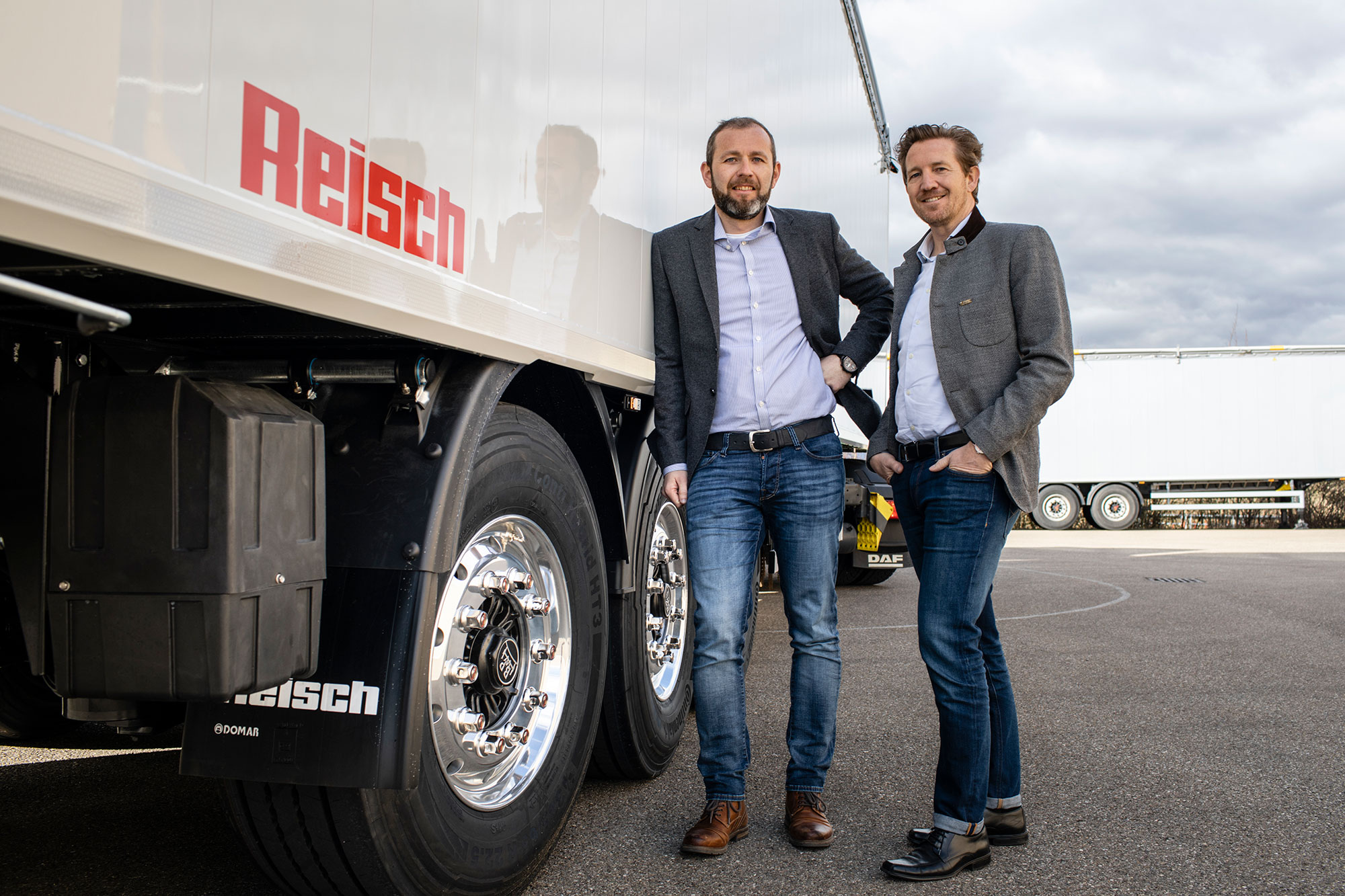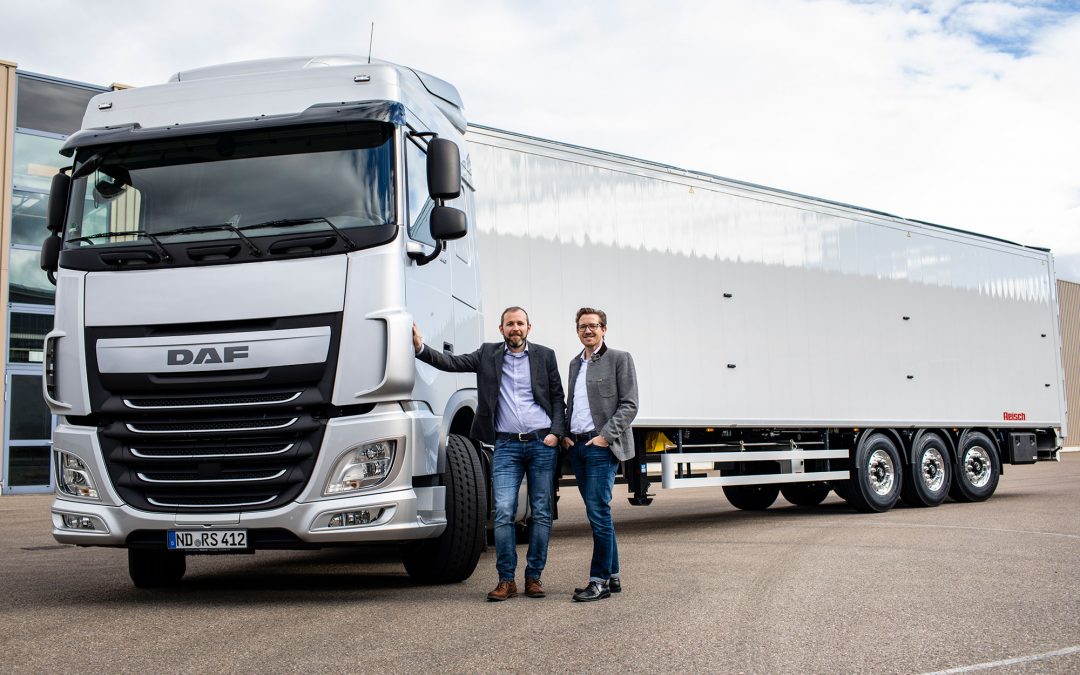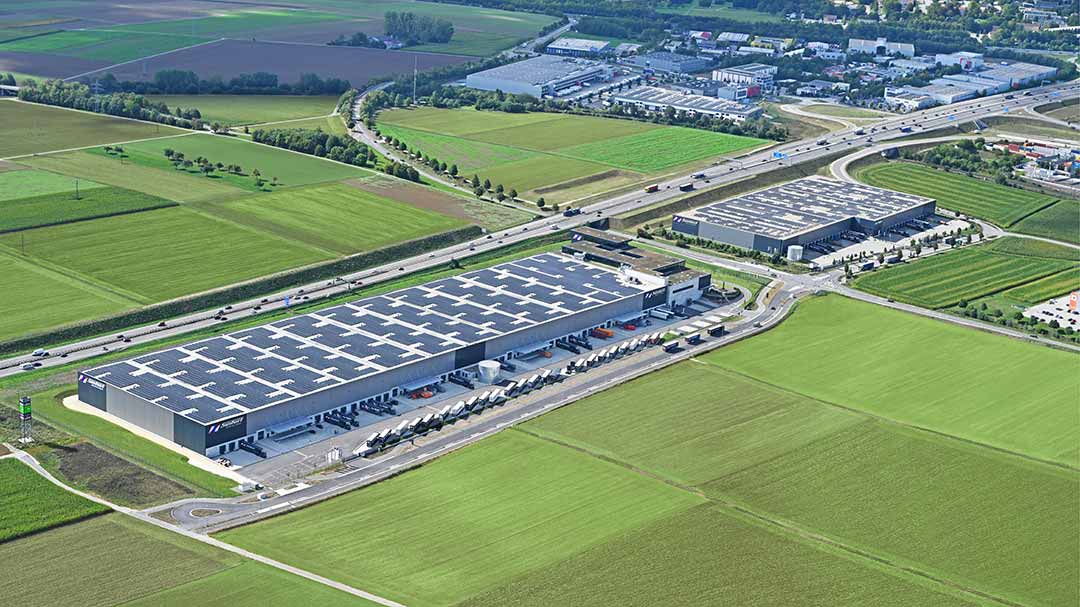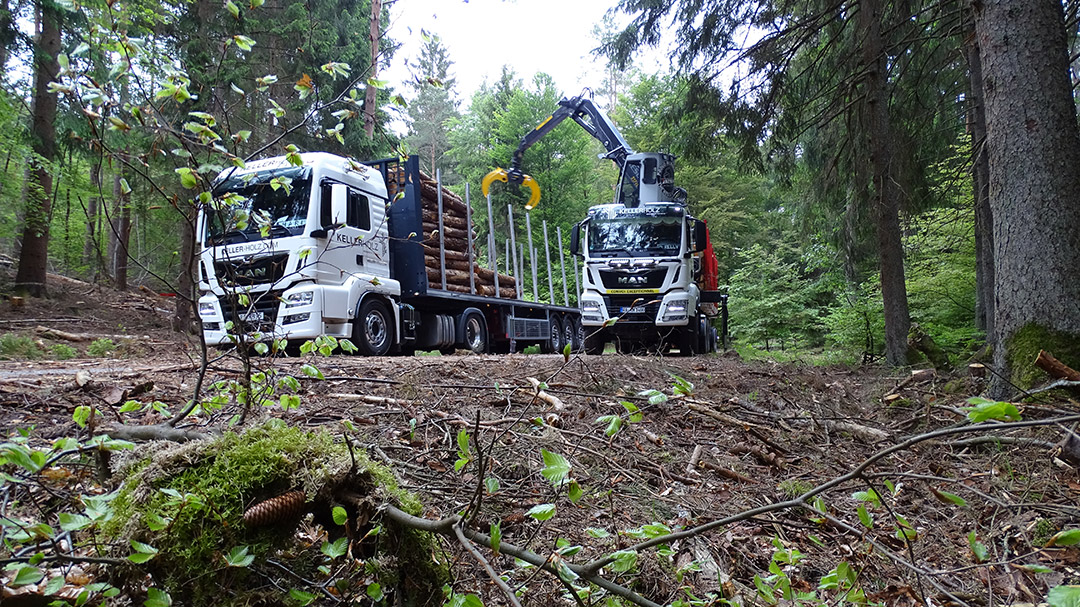Reading time: approx. 4 minutes
Text: Stefan Bottler
Photos: Pia Simon
The traditional Bavarian vehicle manufacturer Martin Reisch GmbH produces high-quality drawbar trailers for the agricultural and commercial vehicle industry. With a new auxiliary steering system, customers can now manoeuvre backwards faster and more easily.
With 350 residents, a church, a fire station and a branch of the Raiffeisenbank, Hollenbach is a small town between Augsburg and Ingolstadt. Rapeseed, spelt, soybeans and corn grow in the surrounding fields – agriculture as far as the eye can see. Industrial companies do not seem to exist here. However, if you turn down the last side street before leaving town and drive to the bottom, you will be proven wrong: four huge factory halls extending over 100,000 square metres run by Martin Reisch GmbH. Around 160 employees manufacture commercial and agricultural vehicles there. Another 60 work in Eliasbrunn in eastern Thuringia, where Reisch opened a branch plant in 1992 – also a village with only about 300 residents.
Within a period of almost 70 years, the company, which was founded as a locksmith’s shop in 1951, has grown from a small handicraft business to a medium-sized commercial vehicle manufacturer – with sales totalling around 26 million euros in 2018. ‘Using our high-quality vehicles, we help our customers with their individual transport tasks,’ says Managing Director Dietmar Gstrein. Around 1,100 vehicles roll off the production line every year. The company covers a wide product spectrum: Reisch manufactures semi-trailers for the commercial vehicle market, which are primarily used to transport bulk goods and piece goods in large volumes. Three-way tippers are manufactured for the agricultural sector in particular.
»Using our high-quality vehicles, we help our customers with their individual transport tasks.«
Dietmar Gstrein, managing director, Martin Reisch GmbH
Individual solutions
‘Our production is characterised by a great depth of added value,’ highlights Gstrein. A well-trained team of technicians develops individual solutions for us together with our customers. The manufacturing team works with the most modern manufacturing techniques, which is why a great deal of vertical integration is possible.
Reisch buys in parts such as brakes and axles – and also attaches great importance to outstanding quality: the commercial vehicle manufacturer regularly uses axles from BPW Bergische Achsen. ‘We have worked together since 1951, since the company was founded,’ explains Gstrein. ‘Many innovations that BPW has developed over the years have been of benefit to us.’ Whether it’s new running gear or other components such as lighting for semi-trailers and drawbar trailers, the vehicle manufacturer always checks whether innovations from the BPW Group could improve its own Reisch vehicles. This was no different with the LL self-steering axle. If the last axle is fitted with this system, the vehicle steers very easily when cornering. If the new Active Reverse Control (ARC) electro-hydraulic auxiliary steering system is additionally installed, the vehicle can also manoeuvre backwards faster and automatically.
Save both money and the environment
Vehicle manufacturers at Reisch knew that many of their customers could work more easily with ARC. ‘If you’re driving on difficult terrain, you often have to reverse and then usually manoeuvre in very tight spaces,’ says Reisch technician Robin Hirschbeck. Reisch has already convinced several customers with this rationale, and so the first vehicles featuring Active Reverse Control will be delivered in the coming weeks. ‘By combining the LL axle and ARC, the vehicle user can save some real money,’ explains Gstrein, the managing director. ‘Since the lateral tyre forces are distributed to all axles, tyre wear is significantly lower.’ This increases the mileage of the rear-axle tyres by up to 70 per cent. As a result, fuel consumption is significantly reduced: the user saves up to 1,000 litres of diesel per 100,000 kilometres. Many older vehicles can also be retrofitted with ARC.
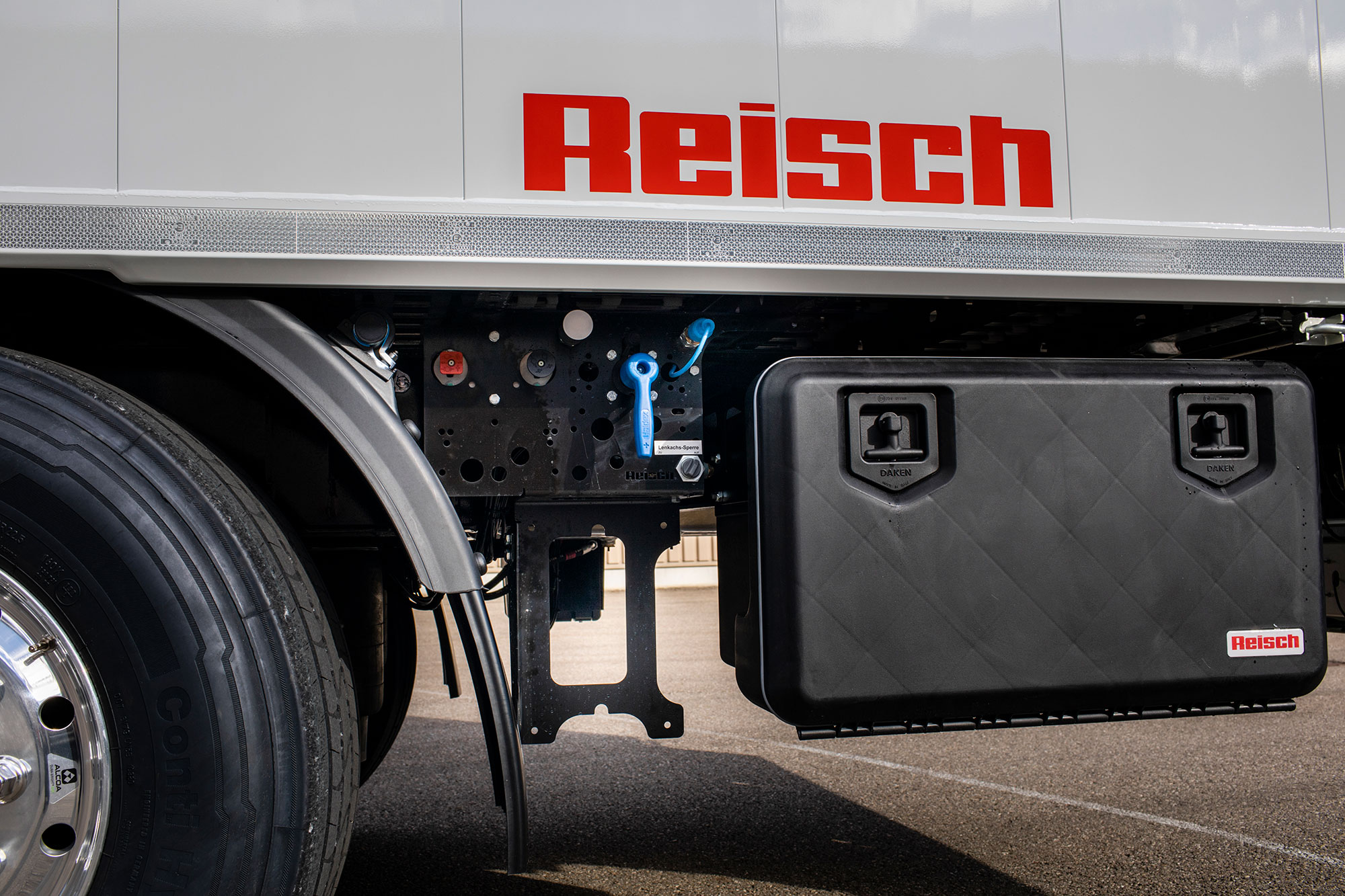
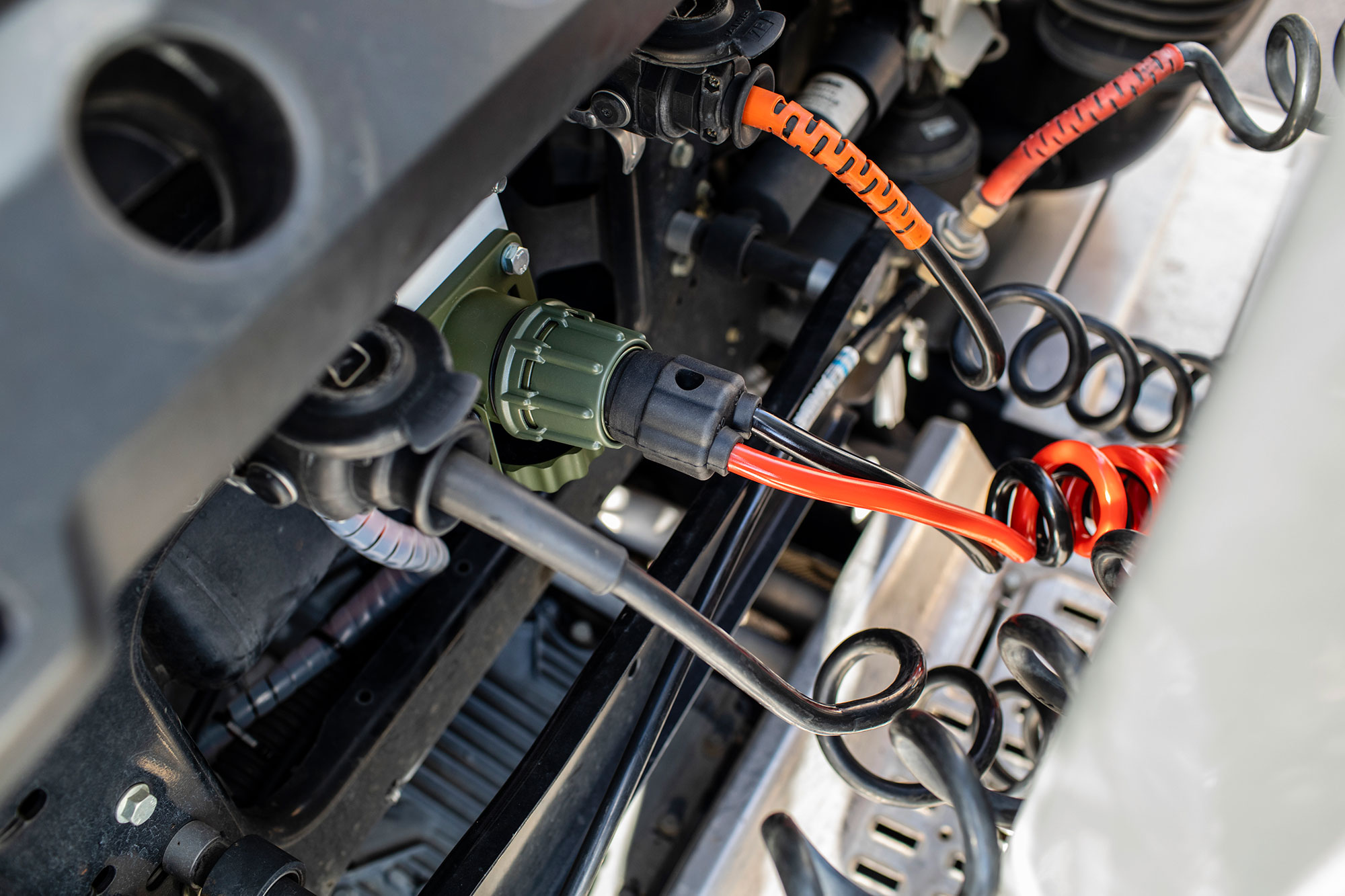
Gstrein seeks to lead Martin Reisch GmbH into the future with such solutions. The Austrian entrepreneur and his partner Clemens Gapp acquired a majority stake in the vehicle manufacturer from Markus Schoder at the end of 2019. The grandson of the founder Martin Reisch, who died at an early age, became the third generation to take over the company in 2001 and expanded both locations in Bavaria and Thuringia over the next two decades, ensuring the company followed a permanent growth path. The new managing directors want to continue this, while also retaining both locations in their idyllic rural settings. ‘We rely on employees who enjoy living in the countryside,’ says Gstrein. Apparently, there are plenty of those around – Reisch has not yet had to contend with a shortage of skilled workers.
